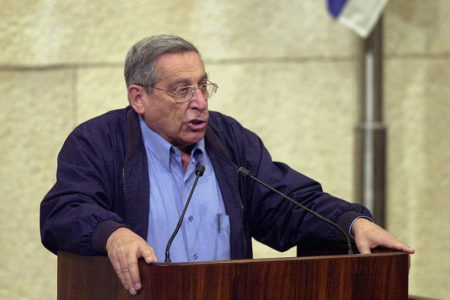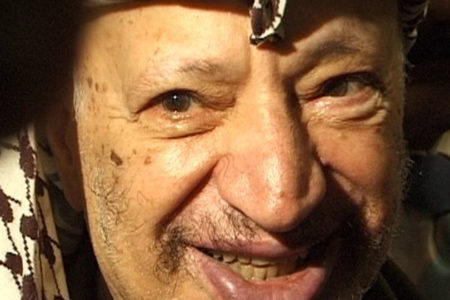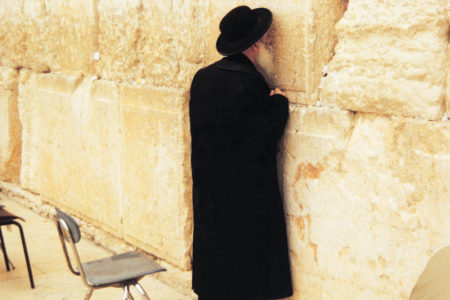Peace in Two Sentences
They have healed also the hurt of the daughter of my people slightly, saying, Peace, peace; when there is no peace (Jer. 6:14).
For when they shall say, Peace and safety, then sudden destruction cometh upon them, as travail upon a woman with child, and they shall not escape (1 Th. 5:3).
Prophets and apostles agree. Throughout the ages men have talked of peace while they made war. They have spoken of utopian societies while they reduced great cities to ashes; and they have promised eras of peace, prosperity, and personal serenity while watching malnutrition and disease ravish their people. To put it bluntly, the course of human history has been a long thoroughfare of broken promises, shattered ambitions, and bloodied bodies.
For disappointing decades, proponents of social and political evolution have deluded themselves and their publics by claiming we are ascending to a higher order of civility, peace, and prosperity and that, by casting aside the authoritarian strictures of biblical Judaism and Christianity in favor of liberating secular liberalism, we would become the shining pagan “global village” so recently popularized by now discredited political, cultural revolutionaries.
These are old stories indeed. Some arose from the mists of ancient lore; others were foisted on us during the last century. But where are we today? Are we any closer to all this bliss and beauty we heard so much about? We don’t need an answer; the truth looms before us every bleak and dismal day that passes. Ironically, words written thousands of years ago are more to the point than most of what is being intoned today from university lecterns, statehouses, mosques, and even some church pulpits in this era of enshrined, wishful thinking. While talk of peace cascades about us, there is no peace—no peace. In fact, the world is more divided, more capable of inflicting mass destruction, and more disposed to doing so than ever in the history of humanity. No! There is no peace.
But What’s So Hard About Finding It?
A focal point in the persistent war for survival is, of course, Israel. While all sides agree that a solution to the Arab-Israeli conflict must be found, it remains as illusive as the storied fountain of youth. No Western nation has worked more assiduously than the United States toward achieving a settlement that would assure Israel’s national security and grant the Palestinians a state of their own. But for all of their investment of time, money, and sincere effort to arrive at some kind of settlement acceptable to all parties, the U.S. president and diplomatic experts in Mideast policy keep coming up empty.
When President George W. Bush was preparing his proposal for a “provisional” Palestinian state, he was being mocked for his efforts by the very people he and many in the administration were trying to salvage as legitimate national leaders of the Palestinian people. And while Palestinian Authority Chairman Yasser Arafat was shouting, “We don’t take orders from anyone,” the Palestinian leadership and its state-controlled media were revving up a less than appreciative response. Their answer came in a three-pronged diatribe against the United States and Israel.
They launched a joint public relations campaign with Islamic terror organizations Hamas and Islamic Jihad.
They leveled an intense media attack on America, branding it the “blood-thirsty” supporter of Israeli “racism” and “fascism.”
And, to top it off, they rejected any compromise on their issue of “Palestinian refugee” resettlement (they call it “the right of return”) in Israel, despite Israeli Foreign Minister Shimon Peres’s offer to withdraw and fully dismantle Israeli settlements in the West Bank and Gaza.1
This manifestly bald-faced rejection of even an interim agreement would seem to sound the death knell for American efforts to bring some relief to the situation.
But we ask again, why is it so hard to find peace for these suffering people? A few days ago, a friend sent me a solution to the problem in two simple sentences:
(1) If the Arabs put down their weapons today, there would be no more violence.
Despite all accusations of Israeli aggression and expansionist intent, this statement is the plain truth. Israel wants peace. For far too long the Jewish people have been subjected to torment and aggression dedicated to destroying the nation and its people. Just how far some of their leaders are willing to go to achieve peace was demonstrated by former Prime Minister Ehud Barak at the Camp David Summit two years ago. But rather than accept virtually everything he claimed to want—the West Bank, Gaza, a piece of Jerusalem proper, and a sovereign Palestinian state—Yasser Arafat spurned the offer and decided he preferred to seek “peace” through the muzzle of a gun.
That Israel was willing to accept being pushed into a ghetto-like area and placed in constant mortal danger in exchange for a promise of peace is in itself rather astonishing. Many believe that the concessions Barak offered and then-President Bill Clinton endorsed were born from Israeli desperation and would have assured even more aggression from Israel’s enemies. I agree.
(2) If the Jews put down their weapons, there would be no more Israel.
This statement is the other, darker side of the coin. Such is the only kind of “peace” that will satisfy Muslim radicals. They will settle for nothing less than the complete annihilation of Israel. Perhaps the most revealing and heart-rending demonstration of how deep-rooted and deadly this fanatical hatred is can be heard in a Palestinian mother’s prayer.
Umm Nidal, the mother of a suicide bomber, was interviewed in the London-based Arabic-language daily Al-Sharq Al-Awsat. She first described to reporters how she regarded herself as a Muslim mother:
I am a compassionate mother to my children, and they are compassionate towards me and take care of me. Because I love my son [Muhammad], I encouraged him to die a martyr’s death for the sake of Allah. . . . Jihad is a religious obligation incumbent upon us, and we must carry it out. I sacrificed Muhammad as part of my obligation.
Later she described how she prayed for Muhammad as he went out on his mission of death:
But I worried and feared greatly that the operation would not succeed, and that he would be arrested. I prayed for him when he left the house and asked Allah to make his operation a success and give him martyrdom. When he entered the [Jewish] settlement, his brothers in the military wing [of Hamas] informed me that he had managed to infiltrate it. Then I began to pray to Allah for him.
I prayed from the depths of my heart that Allah would cause the success of his operation. I asked Allah to give me 10 [Israelis] for Muhammad, and Allah granted my request and Muhammad made his dream come true, killing 10 Israeli settlers and soldiers. Our God honored him even more, in that there were many Israelis wounded.2
To Christian and Jewish mothers and to members of civilized Western democracies, irrational devotion to such a god is incomprehensible. The Canaanites sacrificed their children to pagan deities like Molech by laying them on altars and burning them to death. Today the Palestinians strap them with explosives and blow them to bits. The concept is the same. Only the method has changed.
Equally reprehensible is the morally corrupt leadership that lures these human sacrifices to the “altar” using the Quran and the carnal fantasy of scores of perpetual virgin brides, feasts, and honor from Allah in paradise. To the enemies of Israel and the Jewish people, such practices are well within the bounds of obligation to a god who requires holy wars of aggression. But the cold reality is that there is nothing holy about wars dedicated to the eradication of innocent people whose only “offense” is their desire to possess a small portion of the land of their fathers and dwell there, at peace with themselves and their neighbors.
Victims and Victors
In both of these one-sentence scenarios, there are victims and victors. In the second, however, there are casualties. Umm Vidal and her son Muhammad represent hundreds of trusting Palestinians who are led down a path of destructive delusion. Besides afflicting an entire generation of their young with hate-driven martyr mentalities, these leaders force their people to suffer deprivation because of the ongoing intifada and manic obsession with jihad.
There is, of course, the other option: Stop the shooting. If and when that is done, there will be victors on both sides.
To propose that a cessa tion in the shootings, suicide bombings, sniper killings of Israelis trying to get home from work, and mortar shelling and Katyusha rocketing into Israeli settlements and towns will level a pathway to peace would at once be ridiculed as naïve and simplistic. People who deal in such matters in high diplomatic circles seldom seek straight-line, common-sense solutions.
But what would happen if Yasser Arafat called off his cadre of killers, dispatched the likes of Hamas and Islamic Jihad, and enforced a total cessation of hostilities? The answer is clear and has been demonstrated time and again. Such action brought peace to Egypt and Jordan and offers the same prospect to the Palestinians. If the Palestinian leaders would say “Stop,” there would be no Israeli incursions into Palestinian towns and no need for security fences. There would be freedom for Arab fathers to go to their jobs and for Israelis to ride their buses and walk the streets of Jerusalem, Haifa, and Tel Aviv in security.
The greatest benefit would be a return to the negotiating table to begin the tedious process of working toward a just settlement acceptable to both peoples.
If the Arabs put down their weapons today, there would be no more violence.
It’s not as far-fetched as it may seem. The issue is, Do Arab Muslims have enough courage and concern for the welfare of their own people to try it?
ENDNOTES
- Michael Widlanski, “As Bush Offers Statehood, Palestinian Media Slap U.S. and Hug Hamas, While Arafat Toughens Stance,” Independent Media Review Analysis, June 16, 2002, [www.imra.org.il/story . php3?id=12487].
- “An Interview with the Mother of a Suicide Bomber,” Dispatch 391,The Middle East Media Research Institute, June 18, 2002, [www.memri.org/bin/opener_latest.cgi?ID=SD39102].






